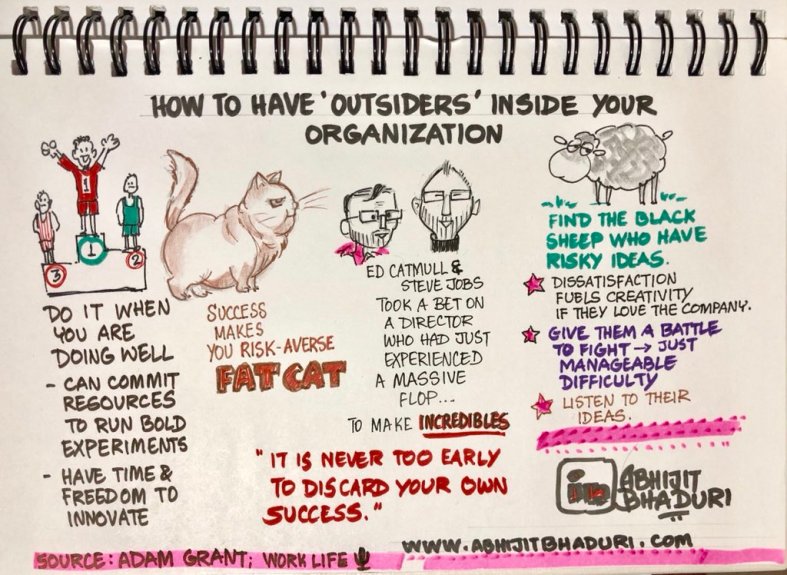Most organizations don’t know what to do with Generalists. Which begs the question: How do you use Generalists inside your organization?
First, let’s define the difference between specialists and generalists. Specialists are subject matter experts, with a deep well of knowledge on a specific topic. Generalists, have expertise and experience in several different areas. These multiple areas of interest are gained by training, work, volunteering, MOOC’s, hobbies and of course an insatiable curiosity and love for learning.
Simple and complicated situations are the domain of specialists, while Generalists are best suited to tackle complex and chaotic situations. Another way to view this is: specialists will bring immediate answers, generalists will ask new questions. For complex challenges, questions trump answers.
Why does this matter?
Business leaders mostly pay lip service to innovation when all they want to talk about is process; and not the challenge itself. Most every business leader I meet with wants to talk about an innovation process, but innovation is as much about perspective and attitude as it is about process. Generalists bring both perspective and attitude: Perspective from not having the weight of old ideas, and a “we’ll figure it out” attitude.
These are the ingredients you need to focus on first before a specific process you can plug-and-play.
5 ways generalists are useful for your organization
With that said, here are 5 ways to use generalists in your organization:
- Solve the right problem. One of the biggest mistakes teams make before starting a project is identifying the right problem to solve. Generalists, with a natural tendency to ask questions, can help the team identify the right problem before coming up with a creative solution.
- To overcome complacency. Generalists are not motivated to maintain the status-quo, this makes them perfect to come in and shake things up.
- To come up with radical ideas. The focus of specialists incremental innovation, generalists are best suited for radical innovation; the type that changes the game.
- To provide perspective on problems that require more than subject matter expert. There’s only so much optimization you can do, generalists break this pattern. Remember, where all think alike nobody thinks very much.
- To lead an innovation team / lab / group. In my experience, Generalists are better suited to leading innovation teams than specialists because they’re natural boundary-crossers and dot connectors.
Adam Grant tweeted the following image that also illustrates how you can make the most of Generalists in your organization:

To overcome complacency…
(1) Gather people who are dissatisfied with the status quo
(2) Listen to their frustrations
(3) Unleash them to attack the problems they see#WorkLife https://t.co/e9GaX4ApgF pic.twitter.com/fVqMLPKDCf— Adam Grant (@AdamMGrant) March 6, 2019
New challenges require new approaches. All organizations have new challenges on the table all the time, but most are not equipped to come up with new approaches to conquer them because they can’t think and act differently. This is a challenge that requires both Specialists and Generalists.






